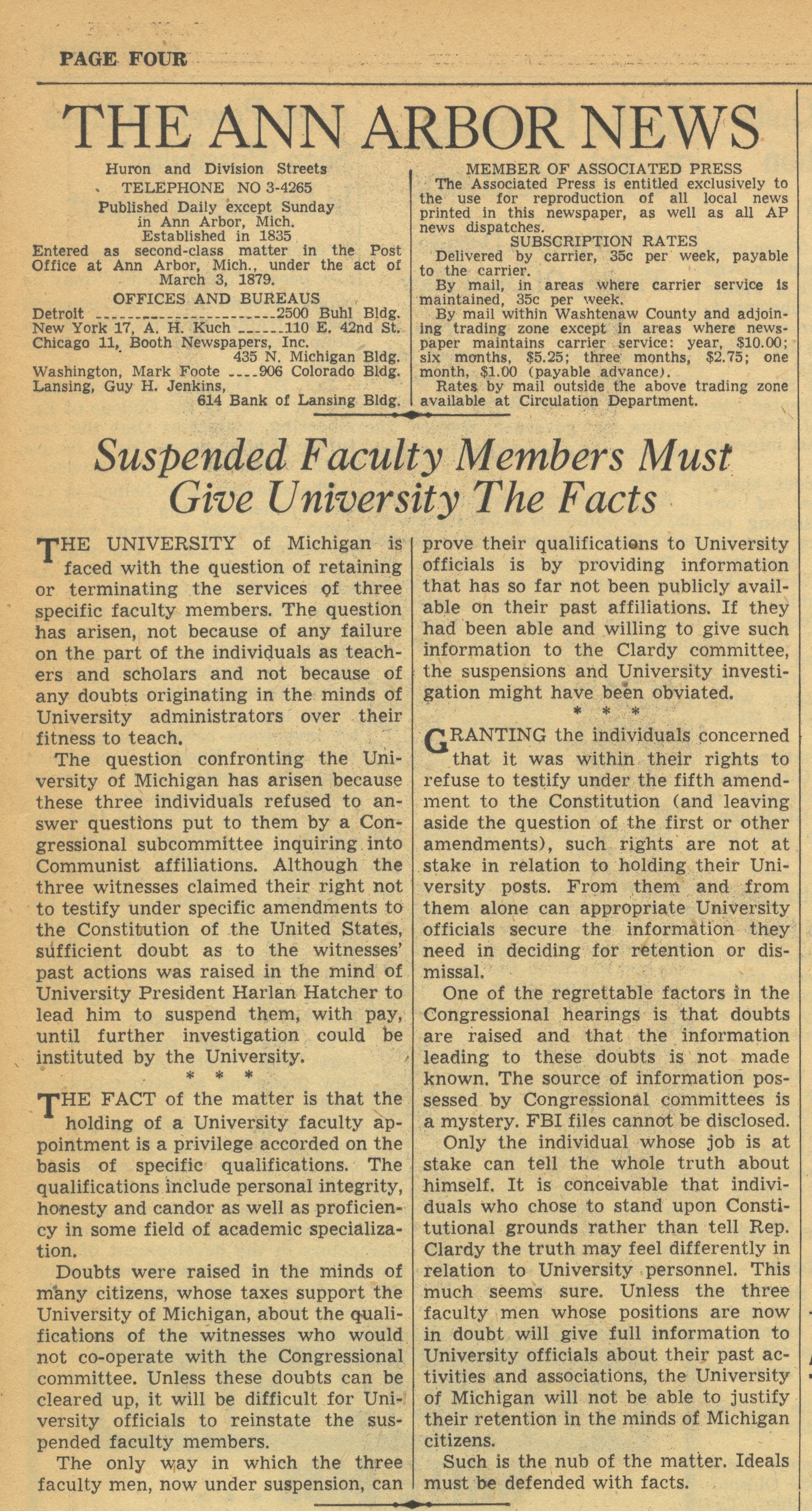Suspended Faculty Members Must Give University The Facts

Suspended Faculty Members Must Give University The Facts
The University of Michigan is faced with the question of retaining or terminating the services of three specific faculty members. The question has arisen, not because of any failure on the part of the individuals as teachers and scholars and not because of any doubts originating in the minds of University administrators over their fitness to teach.
The question confronting the University of Michigan has arisen because these three individuals refused to answer questions put to them by a Congressional subcommittee inquiring into Communist affiliations. Although the three witnesses claimed their right not to testify under specific amendments to the Constitution of the United States, sufficient doubt as to the witnesses’ past actions was raised in the mind of University President Harlan Hatcher to lead him to suspend them, with pay, until further investigation could be instituted by the University.
The fact of the matter is that the holding of a University faculty appointment is a privilege accorded on the basis of specific qualifications. The qualifications include personal integrity, honesty and candor as well as proficiency in some field of academic specialization.
Doubts were raised in the minds of many citizens, whose taxes support the University of Michigan, about the qualifications of the witnesses who would not co-operate with the Congressional committee. Unless these doubts can be cleared up, it will be difficult for University officials to reinstate the suspended faculty members.
The only way in which the three faculty men, now under suspension, can prove their qualifications to University officials is by providing information that has so far not been publicly available on their past affiliations. If they had been able and willing to give such information to the Clardy committee, the suspensions and University investigation might have been obviated.
Granting the individuals concerned that it was within their rights to refuse to testify under the fifth amendment to the Constitution (and leaving aside the question of the first or other amendments), such rights are not at stake in relation to holding their University posts. From them and from them alone can appropriate University officials secure the information they need in deciding for retention or dismissal.
One of the regrettable factors in the Congressional hearings is that doubts are raised and that the information leading to these doubts is not made known. The source of information possessed by Congressional committees is a mystery. FBI files cannot be disclosed.
Only the individual whose job is at stake can tell the whole truth about himself. It is conceivable that individuals who chose to stand upon Constitutional grounds rather than tell Rep. Clardy the truth may feel differently in relation to University personnel. This much seems sure. Unless the three faculty men whose positions are now in doubt will give full information to University officials about their past activities and associations, the University of Michigan will not be able to justify their retention in the minds of Michigan citizens.
Such is the nub of the matter. Ideals must be defended with facts.